Second symposium sur la maladie BPAN en France

Second symposium sur la maladie BPAN en France
L’Université de Bordeaux, l’Association Autour du BPAN se réunissent pour organiser le second symposium sur la maladie BPAN à Bordeaux, France. Ce symposium international réunira des organisations de patients, des experts scientifiques et médicaux pour partager les dernières recherches dans le domaine et favoriser les opportunités de réseautage sur la recherche sur la maladie BPAN.
Conférenciers invités

Chloé Angelini
Généticienne, Centre Hospitalier Universitaire de Bordeaux
Dr Chloé Angelini est médecin généticien dans le centre de référence maladies rares - neurogénétique depuis novembre 2022, et réalise le diagnostic moléculaire des neurodégénérescences avec accumulation intracérébrale de fer, via le panel des 9 principaux gènes de NBIA ou via l’interprétation des génomes réalisés sur la plateforme Auragen. Sa thèse de médecine et son master 2 de neurosciences ont porté sur les NBIA, avec un soutien par l’association Autour du BPAN pour les travaux de recherche menés sur la caractérisation des mécanismes d’accumulation de fer.
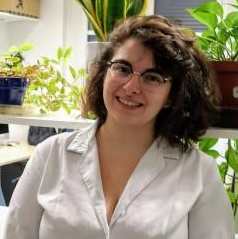
Marion Celle
Laboratoire de biologie et de modélisation de la cellule – CNRS : UMR5239, INSERM U2110, Université de Lyon, ENS de Lyon, UMS344 Biosciences Lyon Gerland - France
Marion Celle a rejoint l’équipe de Bertrand Mollereau en tant qu’ingénieure d’étude à la suite de son master « Génétique et Pathologie de la Cellule ». Elle s’intéresse aux neurodégénérescence associé à une dérégulation de l’autophagie. Elle as travaillé sur l’établissement et la caractérisation du modèle Drosophile du BPAN, une maladie rare neurodégénérative et cherche aujourd’hui a en comprendre les mécanismes sous-jacent.
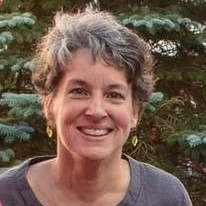
Francine Côté
INSERM U1016, Institut Cochin, Institut National de la Santé et de la Recherche Médicale, Centre National de la Recherche Scientifique, Paris, France
Dr. Francine Côté est membre de l’équipe de recherche « Fer et immunité » de Carole Peyssonnaux et chercheuse principale pour l’étude des fonctions physiologiques de la sérotonine périphérique à l’Institut Cochin. Dr. Francine Côté est actuellement chercheur principal pour un groupe de 5 personnes (2 étudiants au doctorat, 2 MD/PhD et un ingénieur). Elle possède une expertise reconnue dans l’analyse du système sérotoninergique. Dr. Francine Côté a généré le modèle murin déficient en sérotonine périphérique et étudie les fonctions de la sérotonine périphérique depuis 25 ans. Son parcours de recherche en France et au Canada est excellent. Elle a fourni des preuves du rôle joué par les neurofilaments dans la sclérose latérale amyotrophique (Cell and Nature) et a lié la carence maternelle en sérotonine à un développement anormal et à une érythropoïèse inefficace (PNAS et Cell Reports). Elle a récemment établi le lien entre l’homéostasie du fer et la sérotonine (bioRxiv). Ses travaux actuels sont consacrés à l’étude du rôle joué par la sérotonine dans l’homéostasie du fer. Elle a déposé deux brevets. Enfin, Dr. Francine Côté est également membre de l’International Society for Serotonin Research, une association internationale de 450 membres pour les scientifiques intéressés par tous les aspects de la recherche sur la 5-HT.
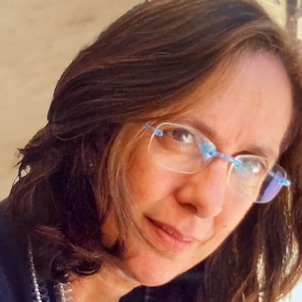
Rosaria Ingrassia
Section de pharmacologie, Département de médecine moléculaire et translationnelle, Université de Brescia Brescia, Italie
Rosaria Ingrassia , après sa thèse de licence en neuroendocrinologie à l’Institut de pharmacologie, faculté de médecine, Université de Milan, a abordé des études d’ingénierie des protéines sur la « Structure et la fonction de la ferritine humaine recombinante » à DIBIT, Hôpital San Raffaele, Milan, puis sur les aspects moléculaires de la biosynthèse des hormones thyroïdiennes au Laboratoire européen de biologie moléculaire de Heidelberg, Allemagne, dans l’unité d’expression génique du Pr Riccardo Cortese avec le Pr Roberto Di Lauro. Elle a ensuite participé à des études sur la régulation transcriptionnelle par les hormones stéroïdes et les facteurs de transcription de la protéine de liaison CAAT-enhancer C / EBP) du gène de la glycoprotéine alpha-1-acide dans la phase aiguë de l’inflammation, à l’Institut de chimie, École de médecine, Université de Brescia, alors qu’elle était scientifique invitée au Département d’immunologie, New York Medical School, Valhalla N.Y. ÉTATS-UNIS. R. Ingrassia, professeur adjoint de biochimie à l’Université de Brescia, a étudié le rôle des mutations autosomiques dominantes du gène de la ferritine humaine, chaîne légère, pour la neuroferritinopathie héréditaire. Elle a ensuite été impliquée, à l’Institut de pharmacologie de la même université, dans des études moléculaires de maladies neurodégénératives, axées sur le rôle du métabolisme du fer dans la pathogenèse de la neurodégénérescence post-ischémique avec activation épigénétique de NF-kB / RelA dans des modèles in vitro et in vivo d’ischémie cérébrale; sur le rôle du transporteur de fer ferreux DMT1 dans le modèle neurodégénératif de la maladie de Parkinson, les souris knockout c-rel et, ensuite, elle a développé l’étude sur la neurodégénérescence avec accumulation de fer cérébral, type 5 (NBIA5 / BPAN) dans les fibroblastes humains de patients atteints de BPAN, grâce également à la collaboration avec la Biobanque de troubles du mouvement du réseau Téléthon de génétique, dirigé par Dr. Barbara Garavaglia.
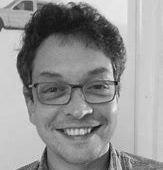
Gaetan Lesca
Institut NeuroMyoGene PNMG, CNRS UMR5310, INSERM U1217, Université Claude Bernard Lyon 1,Lyon, France
Gaëtan Lesca est professeur de génétique médicale (PU-PH) aux Hospices Civils de Lyon et à l’Université Claude Bernard Lyon 1. DES de génétique médicale, avec une orientation dans le domaine de la neurologie et de la neuropédiatrie, il a été assistant hospitalo-Universitaire puis MCU-PH dans le service de génétique médicale des HCL. Depuis plus de 20 ans, il développe des tests génétiques pour le diagnostic des troubles du neurodéveloppement et en particulier des épilepsies monogéniques. Il exerce également une activité de consultations et va reprendre la coordination du centre de compétence des maladies génétiques rares du système nerveux des Hospices Civils de Lyon. Dans le domaine de la recherche, le Pr Lesca a contribué à l’identification de gènes impliqués dans les épilepsies et les autres troubles du neurodéveloppement et est membre de l’équipe de recherche « métabolisme et développement neuronal » (Dr Julien courchet), Laboratoire Physiopathologie et Génétique du Neurone et du Muscle, institut Neuromyogène, CNRS UMR 5261 -INSERM U1315, Université Claude Bernard Lyon 1.
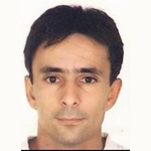
Jean Paul Lasserre
MCU, Université de Bordeaux, Recherche translationnelle sur les maladies neurogénetiques (NRGEN), INCIA
En tant qu’étudiant diplômé à l’Université de Bordeaux, Dr. Jean-Paul Lasserre a montré l’existence d’une deuxième ADN polymérase dans les mitochondries de levure (en utilisant la chromatographie d’affinité). Au cours de plusieurs études post-doctorales à Paris et au Luxembourg, il est devenu expert en protéomique et a développé de nouvelles méthodologies pour l’isolement des complexes protéiques de cellules entières, qu’il a exploitées pour mesurer les effets des pesticides et des PCB sur les cellules humaines. Il y a dix ans, il a été recruté comme maître de conférences permanent à la faculté de pharmacie de l’Université de Bordeaux, et affilié au groupe de recherche de l’Institut de biochimie et de génétique cellulaire (IBGC), un centre de recherche mondialement reconnu sur les mitochondries souvent appelé l’École française de bioénergétique. Dans ce groupe, ses activités de recherche ont été entièrement dédiées à l’étude de la maladie mitochondriale en utilisant la levure comme système modèle avec un fort accent sur le syndrome de Barth. Il a écrit une revue complète sur ce sujet qui a été publiée dans « Disease Models and Mechanisms » et deux articles publiés dans « Microbial Cell » and « Disease Models and Mechanisms ». Il a supervisé un doctorant (De Taffin De Tilques Maxence), soutenu par le ministère français de l’Éducation nationale et de la Recherche, dont les travaux ont été entièrement consacrés à l’étude du syndrome de Barth et à la recherche de voies thérapeutiques potentielles (2014-2017). En 2018, il a changé et intégré l’équipe INSERM U1211 (MRGM : Maladies Rares, Génétique et Métabolisme). Il a été recruté comme expert des études pharmacologiques à base de levures pour développer le modèle de levure pour la maladie mitochondriale comme le BPAN. Depuis 2019, avec le soutien de l’association Autour du BPAN, il continue à travailler sur la pathologie BPAN et récemment (depuis 2022), il a suivi les cliniciens et ils ont rejoint l’INCIA (Institut de Neurosciences Cognitives et Intégratives d’Aquitaine).
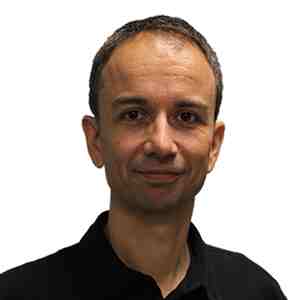
Bertand Mollereau
Laboratoire de Biologie et Modelisation des Cellules – CNRS : UMR5239, INSERM U2110, Université de Lyon, ENS de Lyon, UMS344 Biosciences Lyon Gerland - France
Prof Bertrand Mollereau est directeur de l'équipe « Mort Cellulaire Régulée et Génétique de la Neurodégénérescence » au Laboratoire de Biologie et de Modélisation de la Cellule à l’Ecole Normale Supérieure de Lyon. En 2017, il a été nominé membre senior à l'Institut Universitaire de France, une reconnaissance très prestigieuse de sa carrière scientifique. B. Mollereau est un expert international de la neurodégénérescence, autophagy, stress du reticulum endoplasmique et de la maladie de Parkinson, sujet sur lesquels il a publié plus de 60 publications. En 2019 son équipe a initié un projet sur la maladie BPAN en utilisant le modèle génétique de la Drosophile afin d’y étudier l’importance de l’autophagie et du stress du reticulum endoplasmique.
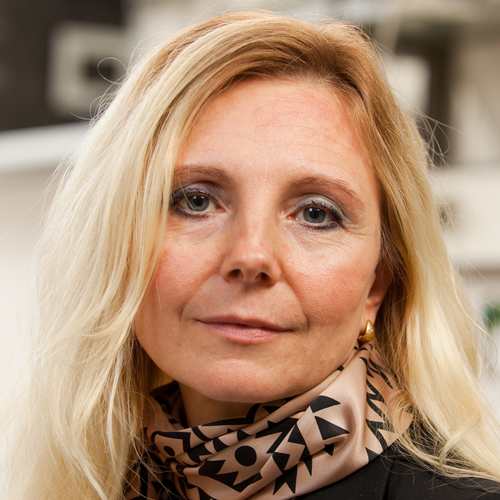
Tassula Proikas-Cezanne
Département de biologie moléculaire, Institut interfacultaire de biologie cellulaire, Université de Tübingen, Allemagne
Prof. Dr. Proikas-Cezanne est une biologiste moléculaire allemande et une experte internationalement reconnue dans la recherche sur l’autophagie. Elle a découvert les gènes humains WIPI, dont le gène WDR45, qui code pour la protéine d’autophagie WIPI4, et dont les mutations sont responsables du BPAN.
Prof. Dr. Proikas-Cezanne a étudié la biologie aux universités de Francfort et de Hambourg et a mené ses études doctorales à l’Institut Max Planck, Laboratoires Max Delbrück à Cologne, en Allemagne. Après des études postdoctorales à l’Institut de recherche Marie Curie à Oxted, au Royaume-Uni et à l’Université Temple à Philadelphie, PA, États-Unis, Proikas-Cezanne a établi ses recherches indépendantes sur l’autophagie à l’Université Eberhard Karls de Tübingen, en Allemagne. Au cours des dernières années, Prof. Dr. Proikas-Cezanne a élargi son programme de recherche sur l’autophagie pour comprendre les mécanismes sous-jacents du BPAN. En plus de la recherche, elle enseigne aux étudiants de maîtrise et de licence, est élue responsable de l’égalité des chances en biologie à l’Université Eberhard Karls de Tübingen et active en tant que fondatrice et porte-parole du réseau allemand d’autophagie sous l’égide de la Société de biochimie et de biologie moléculaire (GBM).
Prof. Dr. Proikas-Cezanne a étudié la biologie aux universités de Francfort et de Hambourg et a mené ses études doctorales à l’Institut Max Planck, Laboratoires Max Delbrück à Cologne, en Allemagne. Après des études postdoctorales à l’Institut de recherche Marie Curie à Oxted, au Royaume-Uni et à l’Université Temple à Philadelphie, PA, États-Unis, Proikas-Cezanne a établi ses recherches indépendantes sur l’autophagie à l’Université Eberhard Karls de Tübingen, en Allemagne. Au cours des dernières années, Prof. Dr. Proikas-Cezanne a élargi son programme de recherche sur l’autophagie pour comprendre les mécanismes sous-jacents du BPAN. En plus de la recherche, elle enseigne aux étudiants de maîtrise et de licence, est élue responsable de l’égalité des chances en biologie à l’Université Eberhard Karls de Tübingen et active en tant que fondatrice et porte-parole du réseau allemand d’autophagie sous l’égide de la Société de biochimie et de biologie moléculaire (GBM).
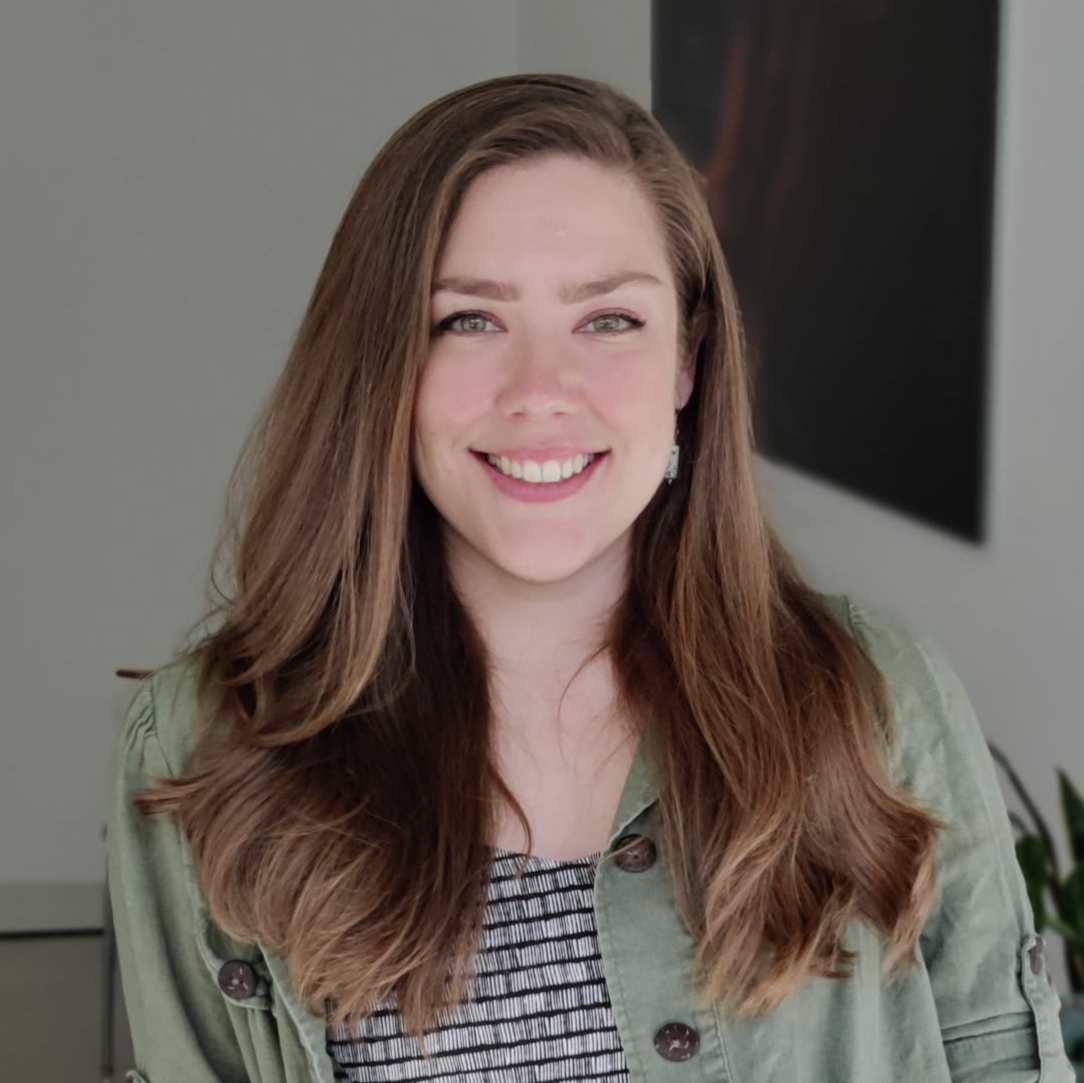
Rachel Wise
Biochimie métabolique, Centre biomédical, Université Ludwig Maximilian Munich, Munich, Allemagne
Dr Rachel Wise est un neuroscientifique déterminé et passionné dédié à la définition des mécanismes moléculaires conduisant la pathologie dans les troubles de la « neurodégénérescence avec accumulation de fer cérébral » (NBIA), en particulier la neurodégénérescence associée à la protéine d’hélice bêta (BPAN). En tant que boursière postdoctorale dans le laboratoire de Lena F. Burbulla, chef du groupe de modélisation translationnelle des maladies au Centre allemand des maladies neurodégénératives (DZNE) de Munich, elle modélise la physiopathologie du BPAN à l’aide de cellules souches pluripotentes induites (iPSCs) dérivées de patients différenciées en neurones dopaminergiques du mésencéphale - l’un des sous-ensembles neuronaux les plus touchés, et en microglie - les macrophages uniques résidant dans le cerveau. Son travail intègre des approches multi-omiques impartiales avec des tests biochimiques ciblés pour délimiter à la fois les mécanismes autonomes cellulaires conduisant à la vulnérabilité des neurones dopaminergiques, ainsi que les mécanismes autonomes non cellulaires contribuant à la neuropathologie unique observée dans le BPAN. Elle se concentre sur les processus cellulaires qui sont particulièrement importants pour les neurones dopaminergiques du mésencéphale, à savoir l’homéostasie du fer, le métabolisme de la dopamine, la formation de neuromélanine et le stress oxydatif. Ses objectifs de carrière à long terme sont de rejoindre la communauté NBIA et d’aider à propulser le progrès scientifique grâce au développement et à l’optimisation de modèles de maladies, à l’expansion des outils de recherche et des ensembles de données et, finalement, à la découverte et à la poursuite de nouvelles voies d’intervention thérapeutique.
Comité d'organisation
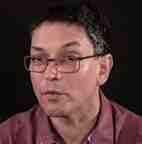
Chloé Angelini
Généticienne, Centre Hospitalier Universitaire de Bordeaux
Member of the scientific council of the association Autour du BPAN, Professor Gaëtan LESCA is a geneticist at the Hospices Civils de Lyon and professor of genetics at the Lyon Est faculty (Université Claude Bernard Lyon 1). It is involved in the genetic diagnosis of neurodevelopment disorders and in particular epilepsies, brain malformations and intellectual disabilities. He also carries out research activities at the CHU and within the NeuroMyoGène Institute. He has contributed to the identification of several genes involved in these diseases and to numerous works on the characterization of genotype-phenotype correlations.

Isabelle Coupry
Chercheuse, CR / Inserm, Recherche translationnelle sur les maladies neurogénetiques (NRGEN), INCIA
Pr. Bertrand Mollereau est responsable du groupe Apoptose et Neurogénétique au Laboratoire de Biologie Moléculaire de la Cellule de l'Ecole Normale Supérieure de Lyon (ENSL). En 1997, le Dr Mollereau a obtenu son doctorat. en Immunologie de l'Université de Paris XI dans le laboratoire d'Anna Senik. Il a ensuite mené des recherches postdoctorales avec le Dr Claude Desplan au Laboratoire de génétique moléculaire des universités Rockefeller et New York. En 2001, le Dr Mollereau a été nommé professeur adjoint de recherche au Laboratoire Strang d'apoptose et de biologie du cancer sous la direction du Dr Hermann Steller à l'Université Rockefeller, aux États-Unis. Là, il a obtenu une subvention du NIH et a dirigé un groupe de recherche junior pour étudier le développement des photorécepteurs et l'apoptose chez la drosophile. Le Dr Mollereau a rejoint la faculté en tant que professeur à l'Ecole Normale Supérieure de Lyon à l'automne 2006. En 2008, son groupe a été lauréat des programmes ATIP (CNRS) et Fondation pour la Recherche Equipe Médicale. Son groupe s'intéresse à la compréhension du mécanisme de la mort cellulaire et de la physiopathologie des maladies neurodégénératives à l'aide de modèles de drosophile et de souris.

Christelle Durand
Ingénieur d'étude, Centre Hospitalier Universitaire de Bordeaux,
Recherche translationnelle sur les maladies neurogénetiques (NRGEN), INCIA
Recherche translationnelle sur les maladies neurogénetiques (NRGEN), INCIA
Ludivine Walter est Maître de Conférences à l'Université Claude Bernard Lyon 1. Elle a obtenu son doctorat en Physiologie, Nutrition et Physiopathologie de l'Université Paris VII sous la tutelle du Pr Eric Fontaine. Immédiatement après son doctorat, elle a suivi une formation post-doctorale au Pr. Laboratoire de Gyorgy Hajnoczky à la Jefferson Medical School de Philadelphie, aux États-Unis. Par la suite, elle a commencé à utiliser un organisme modèle dans le laboratoire du Pr Sylvia Lee à l'Université Cornell d'Ithaca, aux États-Unis, où elle a reçu une bourse United Mitochondrial Disease Fellowship pour travailler sur les mitochondries dans les processus de vieillissement du nématode C. elegans. Une bourse ERG Marie Curie lui a permis de poursuivre ses recherches dans le laboratoire d'Hugo Aguilaniu. Elle a rejoint le laboratoire de Bertrand Mollereau en 2016 pour étudier le rôle des mitochondries dans la mort cellulaire et la physiopathologie. Elle donne des cours de premier cycle et de cycles supérieurs en biologie moléculaire et en génétique.

Patricia Fergelot
Centre Hospitalier Universitaire de Bordeaux | CHU Bordeaux · Centre de référence Anomalies du développement et syndromes malformatifs
MD, PhD
MD, PhD
Ludivine Walter est Maître de Conférences à l'Université Claude Bernard Lyon 1. Elle a obtenu son doctorat en Physiologie, Nutrition et Physiopathologie de l'Université Paris VII sous la tutelle du Pr Eric Fontaine. Immédiatement après son doctorat, elle a suivi une formation post-doctorale au Pr. Laboratoire de Gyorgy Hajnoczky à la Jefferson Medical School de Philadelphie, aux États-Unis. Par la suite, elle a commencé à utiliser un organisme modèle dans le laboratoire du Pr Sylvia Lee à l'Université Cornell d'Ithaca, aux États-Unis, où elle a reçu une bourse United Mitochondrial Disease Fellowship pour travailler sur les mitochondries dans les processus de vieillissement du nématode C. elegans. Une bourse ERG Marie Curie lui a permis de poursuivre ses recherches dans le laboratoire d'Hugo Aguilaniu. Elle a rejoint le laboratoire de Bertrand Mollereau en 2016 pour étudier le rôle des mitochondries dans la mort cellulaire et la physiopathologie. Elle donne des cours de premier cycle et de cycles supérieurs en biologie moléculaire et en génétique.

Cyril Goizet
Chef d'équipe, PU-PH / Centre Hospitalier Universitaire de Bordeaux,
Recherche translationnelle sur les maladies neurogénetiques (NRGEN), INCIA
Recherche translationnelle sur les maladies neurogénetiques (NRGEN), INCIA
Ludivine Walter est Maître de Conférences à l'Université Claude Bernard Lyon 1. Elle a obtenu son doctorat en Physiologie, Nutrition et Physiopathologie de l'Université Paris VII sous la tutelle du Pr Eric Fontaine. Immédiatement après son doctorat, elle a suivi une formation post-doctorale au Pr. Laboratoire de Gyorgy Hajnoczky à la Jefferson Medical School de Philadelphie, aux États-Unis. Par la suite, elle a commencé à utiliser un organisme modèle dans le laboratoire du Pr Sylvia Lee à l'Université Cornell d'Ithaca, aux États-Unis, où elle a reçu une bourse United Mitochondrial Disease Fellowship pour travailler sur les mitochondries dans les processus de vieillissement du nématode C. elegans. Une bourse ERG Marie Curie lui a permis de poursuivre ses recherches dans le laboratoire d'Hugo Aguilaniu. Elle a rejoint le laboratoire de Bertrand Mollereau en 2016 pour étudier le rôle des mitochondries dans la mort cellulaire et la physiopathologie. Elle donne des cours de premier cycle et de cycles supérieurs en biologie moléculaire et en génétique.

Jean-Paul Lasserre
MCU, Université de Bordeaux, Recherche translationnelle sur les maladies neurogénetiques (NRGEN), INCIA
Ludivine Walter est Maître de Conférences à l'Université Claude Bernard Lyon 1. Elle a obtenu son doctorat en Physiologie, Nutrition et Physiopathologie de l'Université Paris VII sous la tutelle du Pr Eric Fontaine. Immédiatement après son doctorat, elle a suivi une formation post-doctorale au Pr. Laboratoire de Gyorgy Hajnoczky à la Jefferson Medical School de Philadelphie, aux États-Unis. Par la suite, elle a commencé à utiliser un organisme modèle dans le laboratoire du Pr Sylvia Lee à l'Université Cornell d'Ithaca, aux États-Unis, où elle a reçu une bourse United Mitochondrial Disease Fellowship pour travailler sur les mitochondries dans les processus de vieillissement du nématode C. elegans. Une bourse ERG Marie Curie lui a permis de poursuivre ses recherches dans le laboratoire d'Hugo Aguilaniu. Elle a rejoint le laboratoire de Bertrand Mollereau en 2016 pour étudier le rôle des mitochondries dans la mort cellulaire et la physiopathologie. Elle donne des cours de premier cycle et de cycles supérieurs en biologie moléculaire et en génétique.

Giovanni Stevanin
Chef d'équipe DR / Inserm / Équipe Recherche translationnelle sur les maladies neurogénetiques (NRGEN), INCIA
Ludivine Walter est Maître de Conférences à l'Université Claude Bernard Lyon 1. Elle a obtenu son doctorat en Physiologie, Nutrition et Physiopathologie de l'Université Paris VII sous la tutelle du Pr Eric Fontaine. Immédiatement après son doctorat, elle a suivi une formation post-doctorale au Pr. Laboratoire de Gyorgy Hajnoczky à la Jefferson Medical School de Philadelphie, aux États-Unis. Par la suite, elle a commencé à utiliser un organisme modèle dans le laboratoire du Pr Sylvia Lee à l'Université Cornell d'Ithaca, aux États-Unis, où elle a reçu une bourse United Mitochondrial Disease Fellowship pour travailler sur les mitochondries dans les processus de vieillissement du nématode C. elegans. Une bourse ERG Marie Curie lui a permis de poursuivre ses recherches dans le laboratoire d'Hugo Aguilaniu. Elle a rejoint le laboratoire de Bertrand Mollereau en 2016 pour étudier le rôle des mitochondries dans la mort cellulaire et la physiopathologie. Elle donne des cours de premier cycle et de cycles supérieurs en biologie moléculaire et en génétique.
Programme Temporaire
Jour 1, programme clinique et scientifique (en anglais)
vendredi 12 mai 2023
ENREGISTREMENT
Enregistrement et café
9:00 - 9:30

Isabelle Coste (Présidente de l'association autour du BPAN)
Introduction
9:30 - 9:45

Tassula Proikas-Cezanne (Département de biologie moléculaire, interfacultaire Institut de biologie cellulaire, Université de Tübingen, Allemagne)
La protéine humaine WIPI à Hélices β dans l'autophagie, santé
et maladie
et maladie
9:45 - 10:30
Understanding the fundamentals of Supplemental Security Income (SSI), Social Security Disability Insurance (SSDI), Childhood Disabled Beneficiary Benefits (CDB), Medi-Cal, Medicare, Regional Center, and In Home Supportive Services (IHSS) is the critical first step for the professional to know how to properly plan for persons with disabilities and how to manage their personal and financial care during their lifetimes. This is the foundational program to all other programs. It is a must see for the beginner and an excellent refresher for the experienced professional.

Olivier Vincent (IIB, Madrid, Espagne)
Objet de la presentation
11:45 - 12:15
Understanding the fundamentals of Supplemental Security Income (SSI), Social Security Disability Insurance (SSDI), Childhood Disabled Beneficiary Benefits (CDB), Medi-Cal, Medicare, Regional Center, and In Home Supportive Services (IHSS) is the critical first step for the professional to know how to properly plan for persons with disabilities and how to manage their personal and financial care during their lifetimes. This is the foundational program to all other programs. It is a must see for the beginner and an excellent refresher for the experienced professional.
Pause café
10:30 - 11:00

Marion Celle (Laboratoire de biologie et de modélisation de la cellule – CNRS : UMR5239, INSERM U2110, Université de Lyon, ENS de Lyon, UMS344 Biosciences Lyon Gerland - France)
Etablissement d'un modèle Drosophile de la maladie BPAN
11:00 - 11:45
Understanding the fundamentals of Supplemental Security Income (SSI), Social Security Disability Insurance (SSDI), Childhood Disabled Beneficiary Benefits (CDB), Medi-Cal, Medicare, Regional Center, and In Home Supportive Services (IHSS) is the critical first step for the professional to know how to properly plan for persons with disabilities and how to manage their personal and financial care during their lifetimes. This is the foundational program to all other programs. It is a must see for the beginner and an excellent refresher for the experienced professional.

Francine Coté (INSERM U1016, Institut Cochin, Institut National de la Santé et de la Recherche Médicale, Centre National de la Recherche Scientifique, Paris, France)
Etude du rôle de la sérotonine dans le contrôle de la ferritinophagie et son application thérapeutique au BPAN
11:45 - 12:15
Le gène WDR45 est localisé sur le chromosome X et différentes variantes de ce gène sont responsables de la maladie neurodégénérative BPAN (neurodégénérescence associée à la protéine ß-propeller). WDR45/WIPI4 est une protéine β-propeller WD-repeat qui appartient à la famille WIPI (WD repeat domain, phosphoinositide interacting). La fonction cellulaire précise de WDR45 est encore largement inconnue, mais des délétions ou des variantes de WDR45 peuvent entraîner des défauts de macroautophagie/autophagie, un dysfonctionnement des mitochondries, un stress du réticulum endoplasmique et un déséquilibre de l'homéostasie du fer, suggérant que cette protéine fonctionne dans une ou plusieurs voies régulant directement ou indirectement ces processus. Notre laboratoire étudie les fonctions moléculaires de WDR45, en particulier dans l'autophagie et l'homéostasie mitochondriale, en utilisant une variété de systèmes cellulaires.
Pause déjeuner au restaurant "Le Family"
12:30 – 14:30
12 Grand Maurian, 33000 Bordeaux

Autour du BPAN
Introduction
14:15 - 14:30

Rosaria Ingrassia (Section de pharmacologie, Département de médecine moléculaire et translationnelle, Université de Brescia, Brescia, Italie)
Dans les fibroblastes des patients atteints de BPAN, le fer ferreux est régulé à la hausse
14:30 – 15h15
Understanding the fundamentals of Supplemental Security Income (SSI), Social Security Disability Insurance (SSDI), Childhood Disabled Beneficiary Benefits (CDB), Medi-Cal, Medicare, Regional Center, and In Home Supportive Services (IHSS) is the critical first step for the professional to know how to properly plan for persons with disabilities and how to manage their personal and financial care during their lifetimes. This is the foundational program to all other programs. It is a must see for the beginner and an excellent refresher for the experienced professional.

Rachel Wise (Biochimie métabolique, Centre biomédical, Ludwig Université Maximilian de Munich, Munich, Allemagne)
Dyshoméostasie du fer et de l'oxydation de la dopamine dans les neurones dopaminergiques dérivés d'iPSC de patients atteints de BPAN
15:10 – 16:00
Understanding the fundamentals of Supplemental Security Income (SSI), Social Security Disability Insurance (SSDI), Childhood Disabled Beneficiary Benefits (CDB), Medi-Cal, Medicare, Regional Center, and In Home Supportive Services (IHSS) is the critical first step for the professional to know how to properly plan for persons with disabilities and how to manage their personal and financial care during their lifetimes. This is the foundational program to all other programs. It is a must see for the beginner and an excellent refresher for the experienced professional.
Pause Café
16:00 – 16:30

Jean-Paul Lasserre (Université de Bordeaux, INCIA, CNRS - UMR 5287, Bordeaux, France)
La levure Saccharomyces cerevisiae utilisée comme outil et modèle dans la pathologie du BPAN
16:30 – 17:15
Understanding the fundamentals of Supplemental Security Income (SSI), Social Security Disability Insurance (SSDI), Childhood Disabled Beneficiary Benefits (CDB), Medi-Cal, Medicare, Regional Center, and In Home Supportive Services (IHSS) is the critical first step for the professional to know how to properly plan for persons with disabilities and how to manage their personal and financial care during their lifetimes. This is the foundational program to all other programs. It is a must see for the beginner and an excellent refresher for the experienced professional.
Synthèse
Objet de la presentation
17:15
Understanding the fundamentals of Supplemental Security Income (SSI), Social Security Disability Insurance (SSDI), Childhood Disabled Beneficiary Benefits (CDB), Medi-Cal, Medicare, Regional Center, and In Home Supportive Services (IHSS) is the critical first step for the professional to know how to properly plan for persons with disabilities and how to manage their personal and financial care during their lifetimes. This is the foundational program to all other programs. It is a must see for the beginner and an excellent refresher for the experienced professional.

À venir
Objet de la presentation
17:45 – 18:15
Understanding the fundamentals of Supplemental Security Income (SSI), Social Security Disability Insurance (SSDI), Childhood Disabled Beneficiary Benefits (CDB), Medi-Cal, Medicare, Regional Center, and In Home Supportive Services (IHSS) is the critical first step for the professional to know how to properly plan for persons with disabilities and how to manage their personal and financial care during their lifetimes. This is the foundational program to all other programs. It is a must see for the beginner and an excellent refresher for the experienced professional.
Fin de la première journée
18:00
Soirée de Gala
Degustation de vin aux 3 Montbazon
3 rue Montbazon, 33000 Bordeaux
Discussion générale
Présentation du vignoble Bordelais par Nicolas Tissier (Sommelier)
19:30
Understanding the fundamentals of Supplemental Security Income (SSI), Social Security Disability Insurance (SSDI), Childhood Disabled Beneficiary Benefits (CDB), Medi-Cal, Medicare, Regional Center, and In Home Supportive Services (IHSS) is the critical first step for the professional to know how to properly plan for persons with disabilities and how to manage their personal and financial care during their lifetimes. This is the foundational program to all other programs. It is a must see for the beginner and an excellent refresher for the experienced professional.
Diner de Gala aux 3 Montbazon
3 rue Montbazon, 33000 Bordeaux
Deuxième jour, programme pour les familles (en français)
samedi 13 mai 2022
ENREGISTREMENT
Enregistrement et café
8:15- 8:45

Isabelle Coste (Présidente de l'association Autour du BPAN)
Introduction
8:45 - 8:55
Understanding the fundamentals of Supplemental Security Income (SSI), Social Security Disability Insurance (SSDI), Childhood Disabled Beneficiary Benefits (CDB), Medi-Cal, Medicare, Regional Center, and In Home Supportive Services (IHSS) is the critical first step for the professional to know how to properly plan for persons with disabilities and how to manage their personal and financial care during their lifetimes. This is the foundational program to all other programs. It is a must see for the beginner and an excellent refresher for the experienced professional.
Recherche

Bertrand Mollereau (Laboratoire de Biologie et de Modélisation de la Cellule – CNRS : UMR5239, INSERM U2110, Université de Lyon, ENS de Lyon, UMS344 Biosciences Lyon Gerland - France)
La restauration de l’autophagie est-elle une stratégie thérapeutique prometteuse pour la maladie BPAN ?
8:55 - 9:20
Understanding the fundamentals of Supplemental Security Income (SSI), Social Security Disability Insurance (SSDI), Childhood Disabled Beneficiary Benefits (CDB), Medi-Cal, Medicare, Regional Center, and In Home Supportive Services (IHSS) is the critical first step for the professional to know how to properly plan for persons with disabilities and how to manage their personal and financial care during their lifetimes. This is the foundational program to all other programs. It is a must see for the beginner and an excellent refresher for the experienced professional.

Francine Coté (INSERM U1016, Institut Cochin, Institut National de la Santé et de la Recherche Médicale, Centre National de la Recherche Scientifique, Paris, France)
Etude du rôle de la sérotonine dans la gestion
du fer : Nouvelle approche thérapeutique
dans le contexte du BPAN
du fer : Nouvelle approche thérapeutique
dans le contexte du BPAN
9:20 - 9:45
Understanding the fundamentals of Supplemental Security Income (SSI), Social Security Disability Insurance (SSDI), Childhood Disabled Beneficiary Benefits (CDB), Medi-Cal, Medicare, Regional Center, and In Home Supportive Services (IHSS) is the critical first step for the professional to know how to properly plan for persons with disabilities and how to manage their personal and financial care during their lifetimes. This is the foundational program to all other programs. It is a must see for the beginner and an excellent refresher for the experienced professional.

Jean-Paul Lasserre (Université de Bordeaux, INCIA, CNRS - UMR 5287, Bordeaux, France)
La levure Saccharomyces cerevisiae utilisée comme outil et modèle dans la pathologie du BPAN
9:45 - 10:10
Understanding the fundamentals of Supplemental Security Income (SSI), Social Security Disability Insurance (SSDI), Childhood Disabled Beneficiary Benefits (CDB), Medi-Cal, Medicare, Regional Center, and In Home Supportive Services (IHSS) is the critical first step for the professional to know how to properly plan for persons with disabilities and how to manage their personal and financial care during their lifetimes. This is the foundational program to all other programs. It is a must see for the beginner and an excellent refresher for the experienced professional.
Pause café
10:10 - 10:40
Le Protocole Nationnal de Diagnostic et de Soins (PNDS)
10:40 – 11:30
Déjeuner libre
12:30 – 14:00

Gaetan Lesca (Institut NeuroMyoGene PNMG, CNRS UMR5310, INSERM U1217, Université Claude Bernard Lyon 1,Lyon, France)
Understanding the fundamentals of Supplemental Security Income (SSI), Social Security Disability Insurance (SSDI), Childhood Disabled Beneficiary Benefits (CDB), Medi-Cal, Medicare, Regional Center, and In Home Supportive Services (IHSS) is the critical first step for the professional to know how to properly plan for persons with disabilities and how to manage their personal and financial care during their lifetimes. This is the foundational program to all other programs. It is a must see for the beginner and an excellent refresher for the experienced professional.

Alexandra Benchoua/Joanna Tournois (I-Stem, Evry, France)
Objet de la presentation
11:30 – 12:00
Understanding the fundamentals of Supplemental Security Income (SSI), Social Security Disability Insurance (SSDI), Childhood Disabled Beneficiary Benefits (CDB), Medi-Cal, Medicare, Regional Center, and In Home Supportive Services (IHSS) is the critical first step for the professional to know how to properly plan for persons with disabilities and how to manage their personal and financial care during their lifetimes. This is the foundational program to all other programs. It is a must see for the beginner and an excellent refresher for the experienced professional.
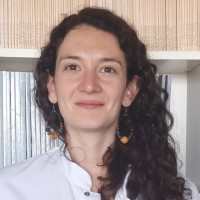
Chloé Angélini (Centre de Référence Neurogénétique, Service de Génétique Médicale, CHU Bordeaux, Bordeaux, France)
Understanding the fundamentals of Supplemental Security Income (SSI), Social Security Disability Insurance (SSDI), Childhood Disabled Beneficiary Benefits (CDB), Medi-Cal, Medicare, Regional Center, and In Home Supportive Services (IHSS) is the critical first step for the professional to know how to properly plan for persons with disabilities and how to manage their personal and financial care during their lifetimes. This is the foundational program to all other programs. It is a must see for the beginner and an excellent refresher for the experienced professional.
Résumé de la session scientifique du vendredi 12 mai
General discussion
11:30 – 12:00
Understanding the fundamentals of Supplemental Security Income (SSI), Social Security Disability Insurance (SSDI), Childhood Disabled Beneficiary Benefits (CDB), Medi-Cal, Medicare, Regional Center, and In Home Supportive Services (IHSS) is the critical first step for the professional to know how to properly plan for persons with disabilities and how to manage their personal and financial care during their lifetimes. This is the foundational program to all other programs. It is a must see for the beginner and an excellent refresher for the experienced professional.
Fin du Symposium
12:00
Inscription
Frais d'inscription
L'inscription au symposium de cette année coûte 45,00€ le premier jour, en option 45,00€ pour le dîner de gala (valable uniquement pour les personnes inscrites le premier jour) et 12,00€ le deuxième jour (prix en euros) pour tous.
L'inscription doit se faire en ligne. Inscriptions jusqu'au 30 Avril.
Les paiements peuvent être effectués en ligne par carte (Mastercard/VISA), PayPal, par virement ou chèque après avoir établi un bon de commande à l'aide du formulaire d'inscription qui se trouvera ci-dessous.
L'inscription au symposium de cette année coûte 45,00€ le premier jour, en option 45,00€ pour le dîner de gala (valable uniquement pour les personnes inscrites le premier jour) et 12,00€ le deuxième jour (prix en euros) pour tous.
L'inscription doit se faire en ligne. Inscriptions jusqu'au 30 Avril.
Les paiements peuvent être effectués en ligne par carte (Mastercard/VISA), PayPal, par virement ou chèque après avoir établi un bon de commande à l'aide du formulaire d'inscription qui se trouvera ci-dessous.
Step One: Verify your identity. To access the registration form, you must enter a valid email. A verification code will be sent to this email.
Step Two: Complete the form below to order.
Step Tree: Choose your payment method.
Direct payment: By paypal or Credit Cards
Place Order: Your can download this purchase order - payment can be made by bank transfer or bank check before April 29th
Generate the purchase Order
A partir du 15 Mars 2023
Les inscriptions sont closes.
Informations
Veuillez remplir le formulaire ci-dessous pour plus d'informations sur le programme et l'inscription.
Prolongation de la date limite de soumission des résumés au 11 avril
Prolongation de la date limite de soumission des résumés au 11 avril
Plan d'accès
Le symposium aura lieu à l'amphithéâtre odontologie (amphithéâtre B appelé Henri Huguet), sur le Site Carreire de l'Universsité de Bordeaux, situé 146, rue Léo Saignat 33076 Bordeaux cedex.

DEPUIS L'AEROPORT BORDEAUX (50 à 60 minutes)
1. À l'arrêt Aéroport, prendre la Liane 1 direction Quinconces
2. Descendre à l'arrêt Lycées de Mérignac.
3. À l'arrêt Lycées de Mérignac, prendre le Tramway Ligne A direction La Gardette - Bassens - Carbon-Blanc
4. Descendre à l'arrêt Hôpital pellegrin. (Voir le trajet à pied depuis cet arrêt sur les plans de proximité ci-dessous)
1. À l'arrêt Aéroport, prendre la Liane 1 direction Quinconces
2. Descendre à l'arrêt Lycées de Mérignac.
3. À l'arrêt Lycées de Mérignac, prendre le Tramway Ligne A direction La Gardette - Bassens - Carbon-Blanc
4. Descendre à l'arrêt Hôpital pellegrin. (Voir le trajet à pied depuis cet arrêt sur les plans de proximité ci-dessous)

DEPUIS LA GARE SNCF (GARE SAINT JEAN) (15 À 20 MINUTES)
Prendre le Tramway Ligne C direction Les Aubiers jusqu'à l'arrêt Porte de Bourgogne ; Prendre le Tramway Ligne A direction Mérignac Centre,
Descendre à l'arrêt Hôpital pellegrin. (Voir le trajet à pied depuis cet arrêt sur les plans de proximité ci-dessous)
Prendre le Tramway Ligne C direction Les Aubiers jusqu'à l'arrêt Porte de Bourgogne ; Prendre le Tramway Ligne A direction Mérignac Centre,
Descendre à l'arrêt Hôpital pellegrin. (Voir le trajet à pied depuis cet arrêt sur les plans de proximité ci-dessous)

EN VOITURE, DEPUIS PARIS :
1. Suivre la direction : BORDEAUX-CENTRE / GARE SAINT-JEAN, puis BOULEVARDS,
2. Passer les barrières de Bègles, Toulouse, St Genès puis Pessac,
3. Suivre ensuite Université Bordeaux 2 (sur la gauche).
EN VOITURE, DEPUIS TOULOUSE :
1. Suivre la direction : BASSIN D'ARCACHON / MÉRIGNAC / PESSAC / VILLENAVE-D'ORNON,
2. Sortir à la sortie n°16, Puis suivre la direction TALENCE-CENTRE / DOMAINE UNIVERSITAIRE,
3. Arrivé sur les Boulevards suivre (à gauche) CHU Pellegrin et passer les barrières de St Genès, puis Pessac, suivre ensuite Université Bordeaux 2 (sur la gauche).
1. Suivre la direction : BORDEAUX-CENTRE / GARE SAINT-JEAN, puis BOULEVARDS,
2. Passer les barrières de Bègles, Toulouse, St Genès puis Pessac,
3. Suivre ensuite Université Bordeaux 2 (sur la gauche).
EN VOITURE, DEPUIS TOULOUSE :
1. Suivre la direction : BASSIN D'ARCACHON / MÉRIGNAC / PESSAC / VILLENAVE-D'ORNON,
2. Sortir à la sortie n°16, Puis suivre la direction TALENCE-CENTRE / DOMAINE UNIVERSITAIRE,
3. Arrivé sur les Boulevards suivre (à gauche) CHU Pellegrin et passer les barrières de St Genès, puis Pessac, suivre ensuite Université Bordeaux 2 (sur la gauche).

















